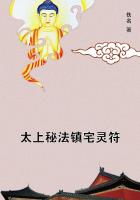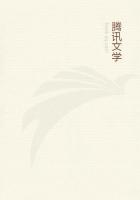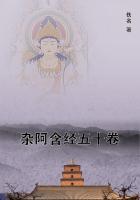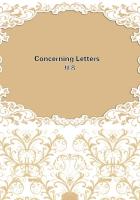His whole life taught the lesson that the world is well lost whenever the world is wrong; but never, I think, did any life teach this so sweetly, so winningly. The wrong world itself might have been entreated by him to be right, for he was one of the few reformers who have not in some measure mixed their love of man with hate of men; his quarrel was with error, and not with the persons who were in it. He was so gently steadfast in his opinions that no one ever thought of him as a fanatic, though many who held his opinions were assailed as fanatics, and suffered the shame if they did not win the palm of martyrdom. In early life he was a communist, and then when he came out of Brook Farm into the world which he was so well fitted to adorn, and which would so gladly have kept him all its own, he became an abolitionist in the very teeth of the world which abhorred abolitionists. He was a believer in the cause of women's rights, which has no picturesqueness, and which chiefly appeals to the sense of humor in the men who never dreamt of laughing at him. The man who was in the last degree amiable was to the last degree unyielding where conscience was concerned; the soul which was so tender had no weakness in it; his lenity was the divination of a finer justice. His honesty made all men trust him when they doubted his opinions; his good sense made them doubt their own opinions, when they had as little question of their own honesty.
I should not find it easy to speak of him as a man of letters only, for humanity was above the humanities with him, and we all know how he turned from the fairest career in literature to tread the thorny path of politics because he believed that duty led the way, and that good citizens were needed more than good romancers. No doubt they are, and yet it must always be a keen regret with the men of my generation who witnessed with such rapture the early proofs of his talent, that he could not have devoted it wholly to the beautiful, and let others look after the true. Now that I have said this I am half ashamed of it, for I know well enough that what he did was best; but if my regret is mean, I will let it remain, for it is faithful to the mood which many have been in concerning him.
There can be no dispute, I am sure, as to the value of some of the results he achieved in that other path. He did indeed create anew for us the type of good-citizenship, well-nigh effaced in a sordid and selfish time, and of an honest politician and a pure-minded journalist. He never really forsook literature, and the world of actual interests and experiences afforded him outlooks and perspectives, without which aesthetic endeavor is self-limited and purblind. He was a great man of letters, he was a great orator, he was a great political journalist, he was a great citizen, he was a great philanthropist. But that last word with its conventional application scarcely describes the brave and gentle friend of men that he was. He was one that helped others by all that he did, and said, and was, and the circle of his use was as wide as his fame. There are other great men, plenty of them, common great men, whom we know as names and powers, and whom we willingly let the ages have when they die, for, living or dead, they are alike remote from us. They have never been with us where we live; but this great man was the neighbor, the contemporary, and the friend of all who read him or heard him; and even in the swift forgetting of this electrical age the stamp of his personality will not be effaced from their minds or hearts.















